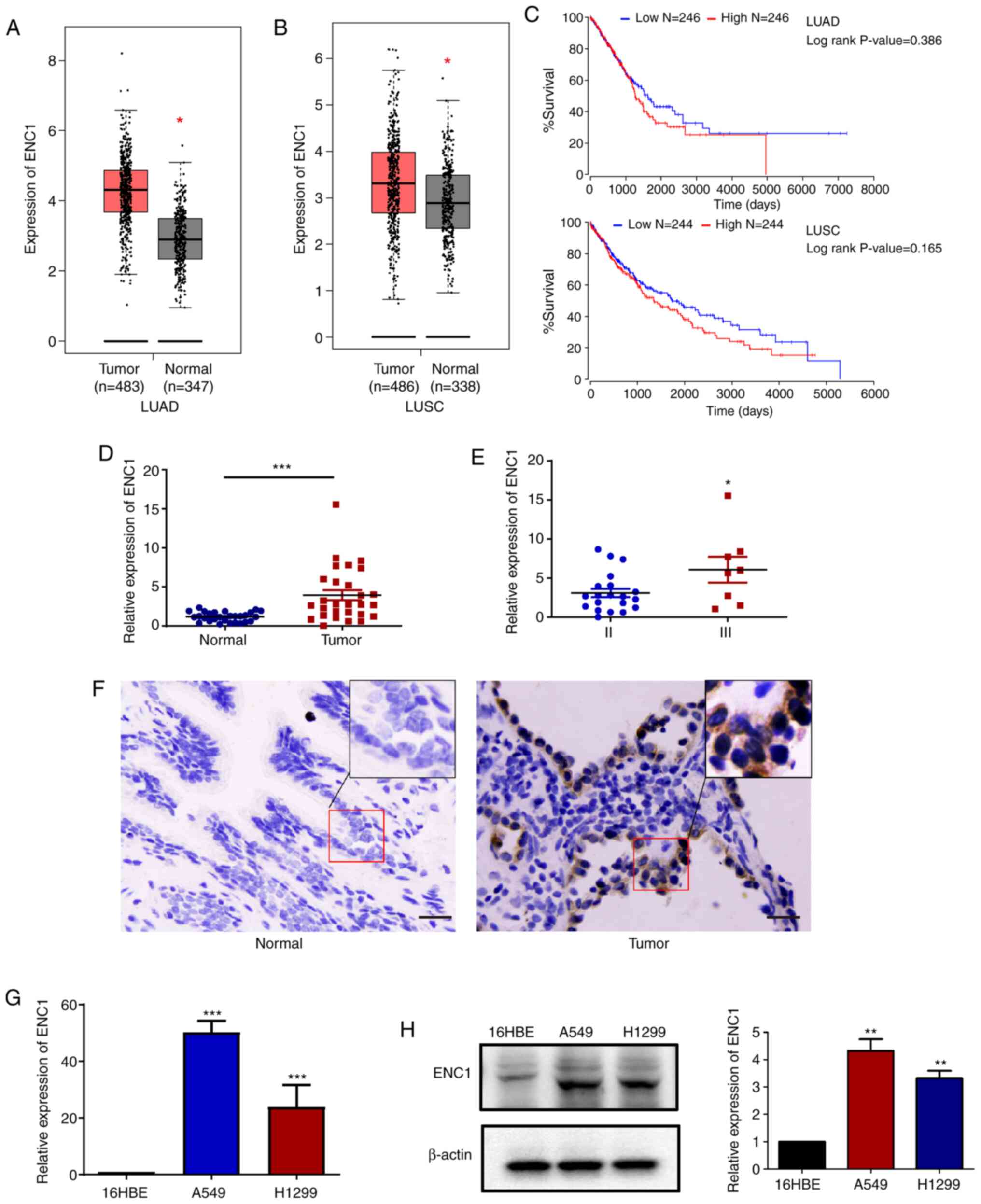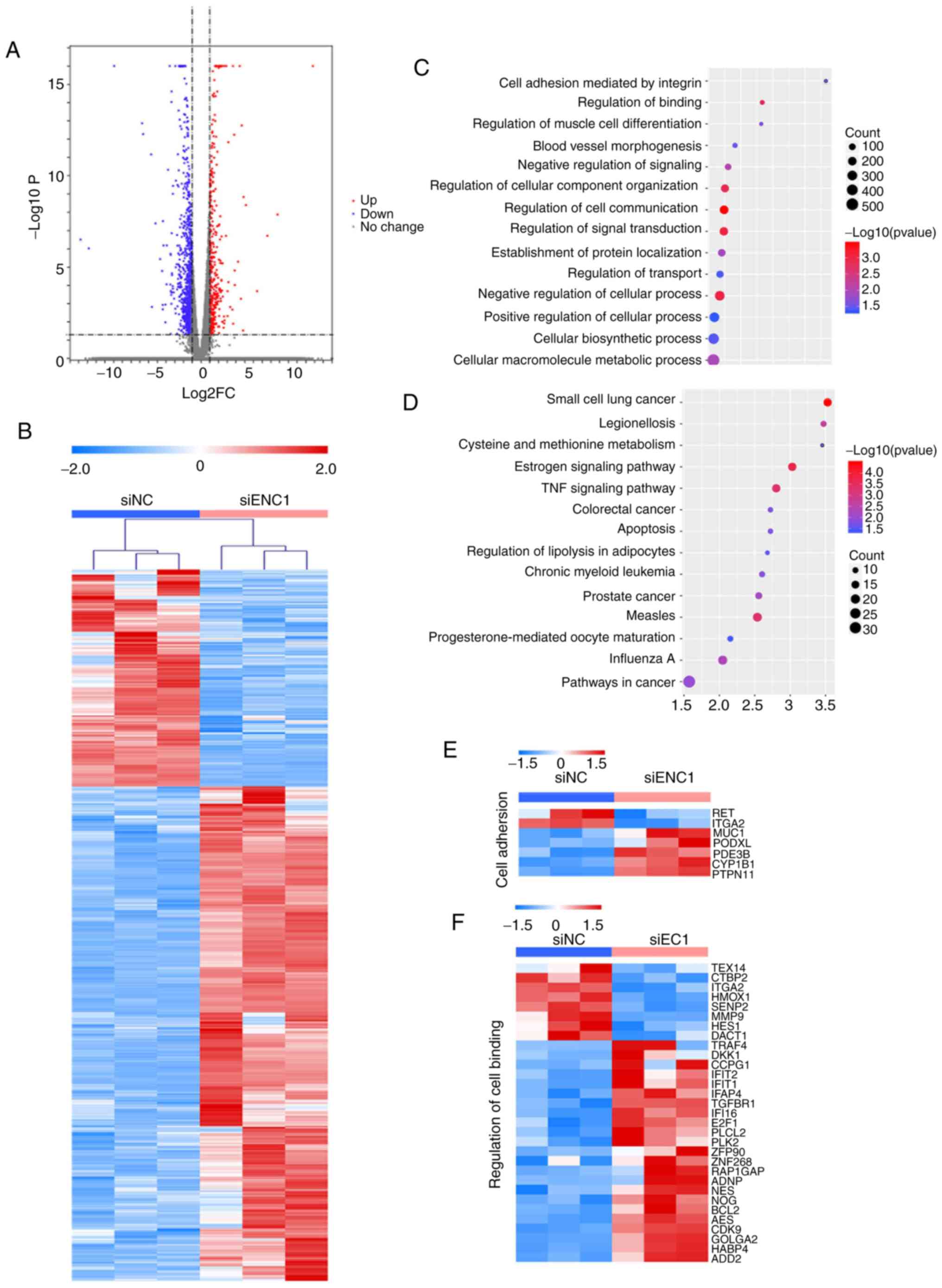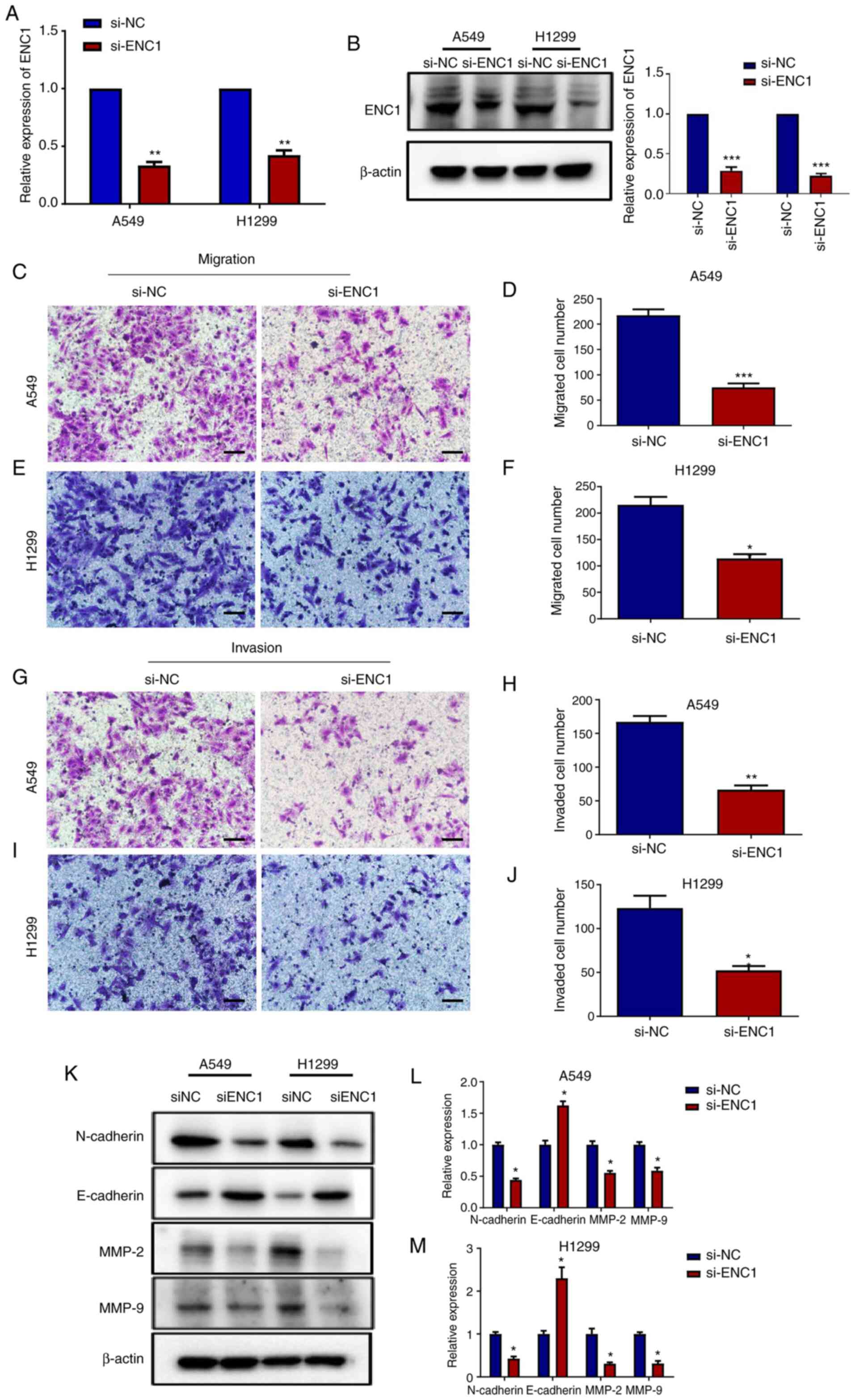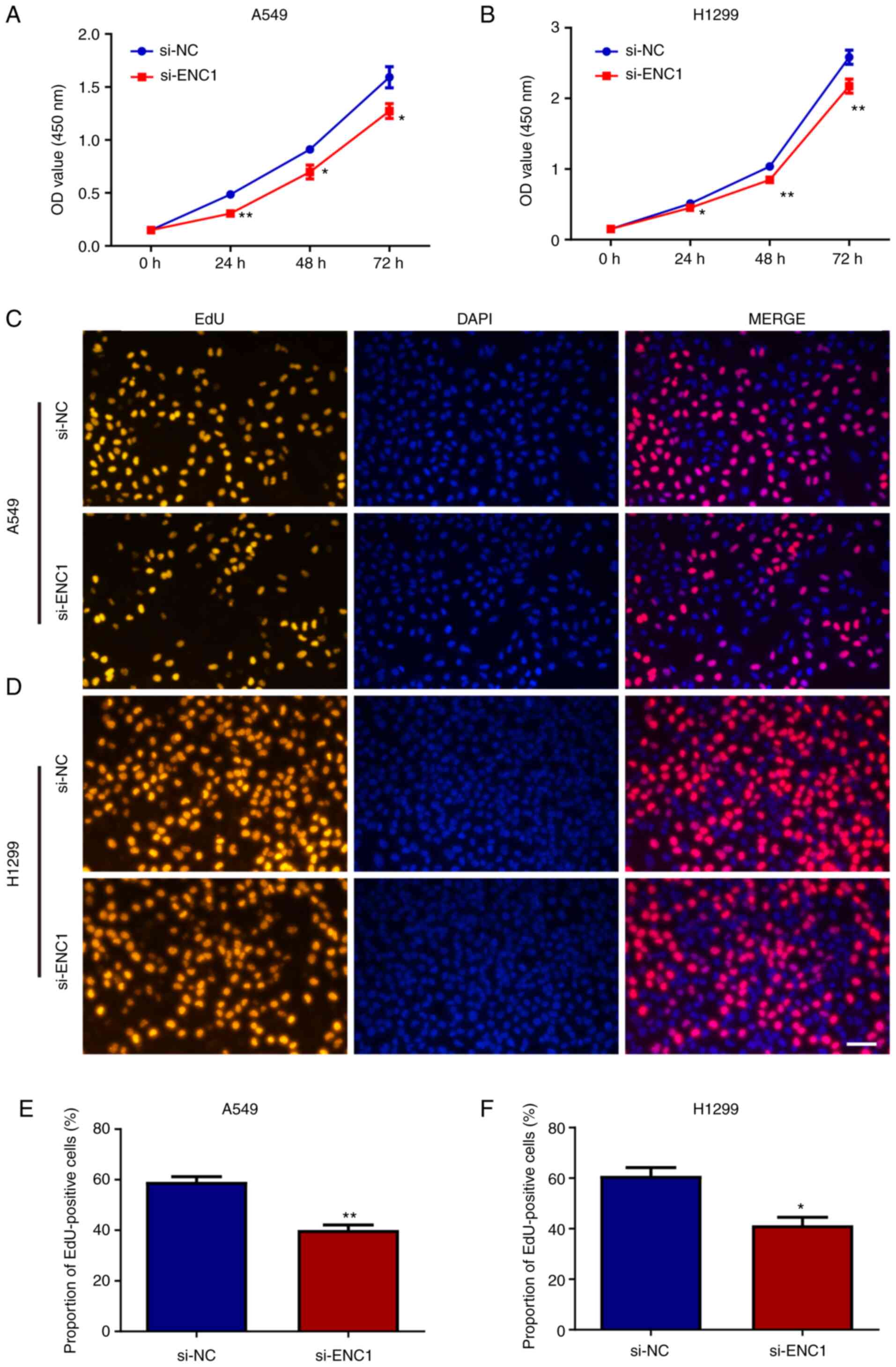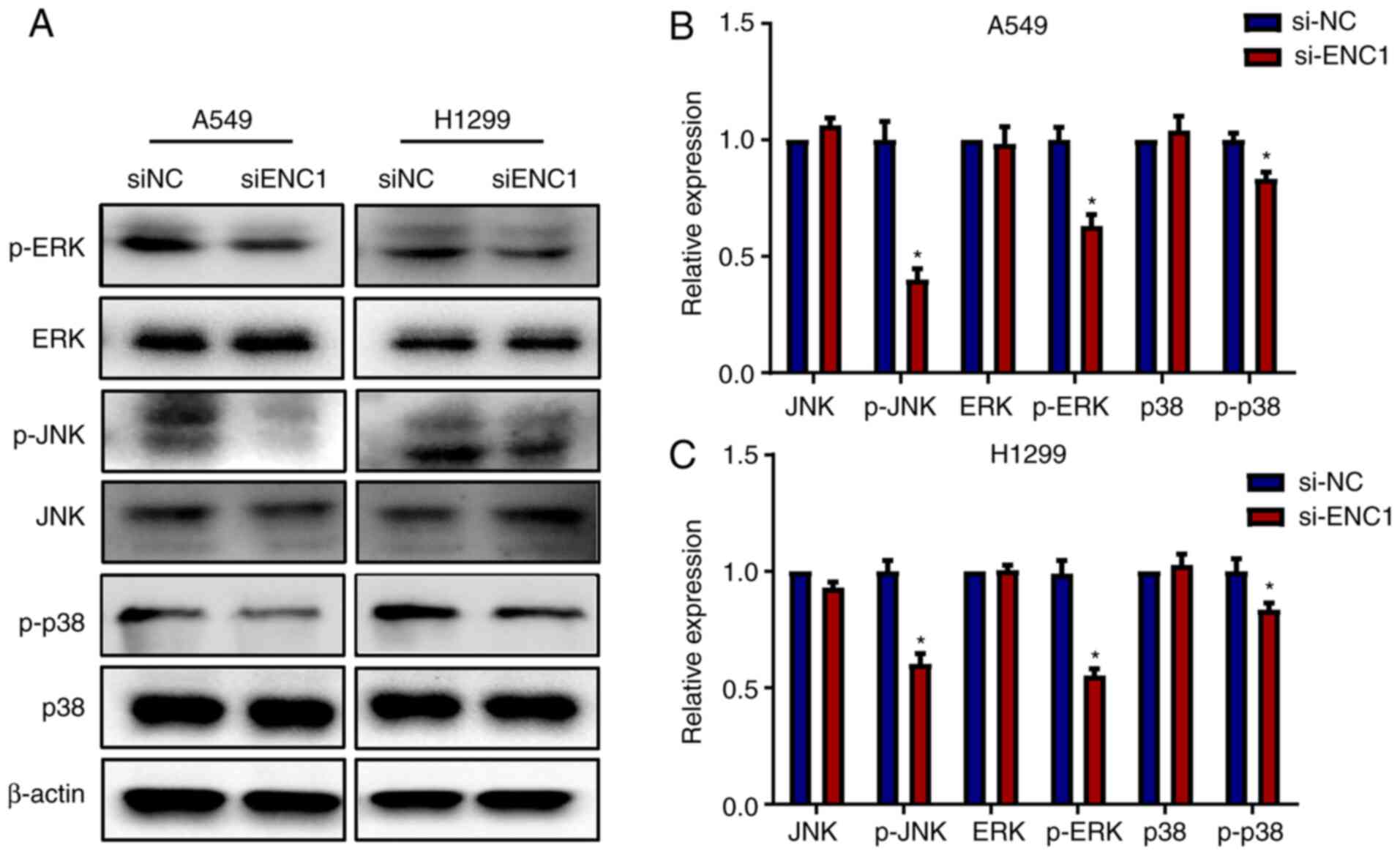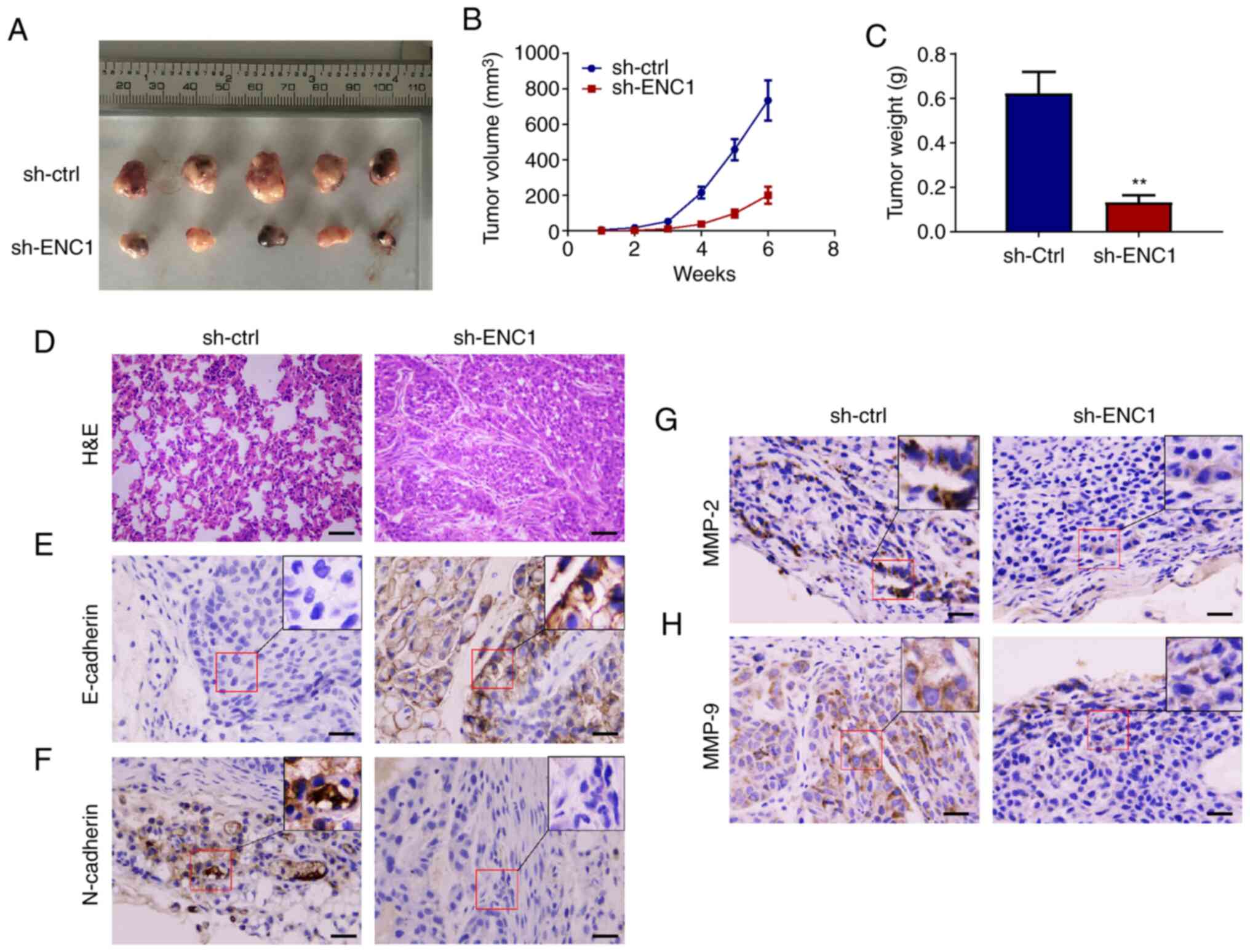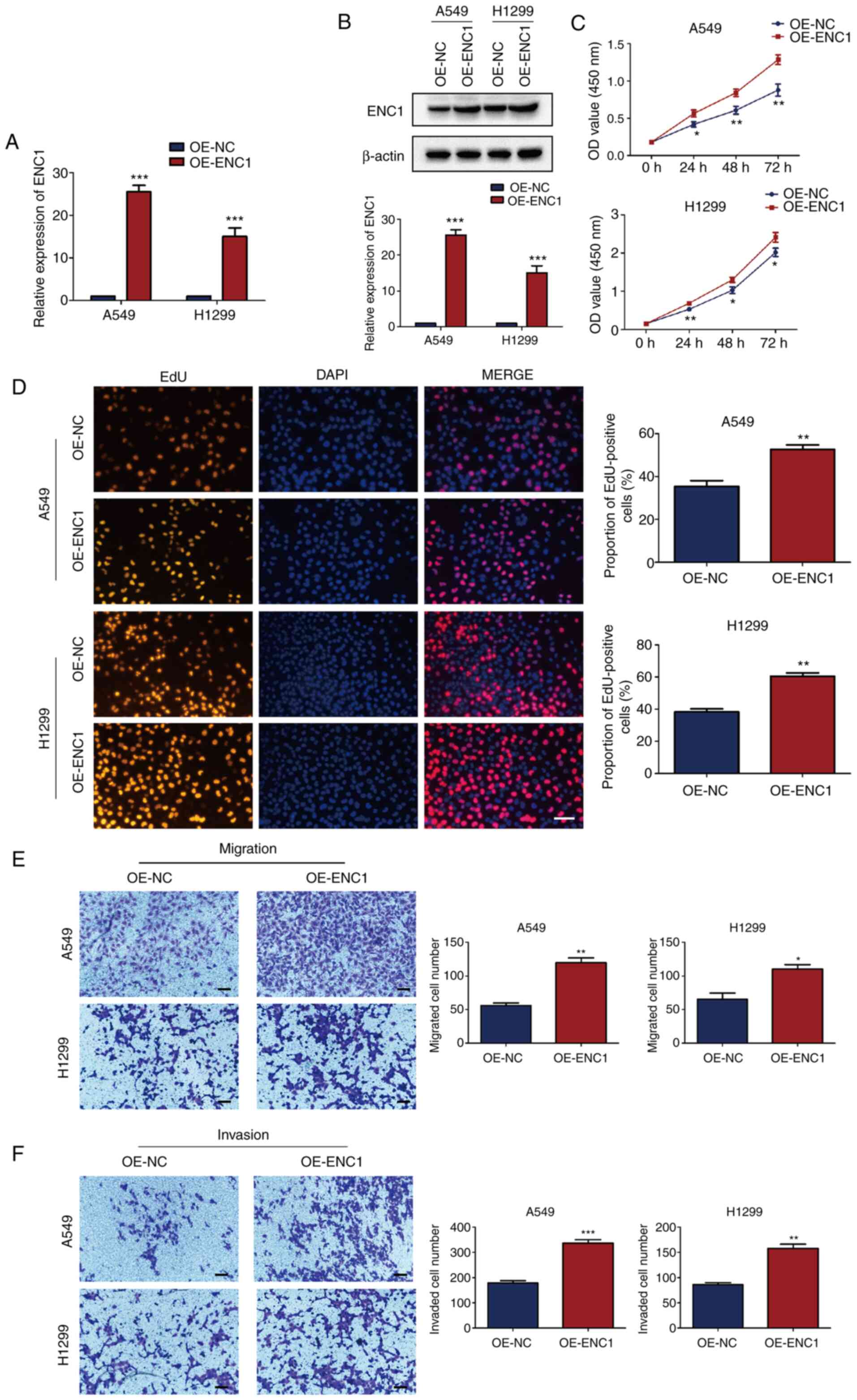|
1
|
Bray F, Ferlay J, Soerjomataram I, Siegel
RL, Torre LA and Jemal A: Global cancer statistics 2018: GLOBOCAN
estimates of incidence and mortality worldwide for 36 cancers in
185 countries. CA Cancer J Clin. 68:394–424. 2018. View Article : Google Scholar : PubMed/NCBI
|
|
2
|
Torre LA, Bray F, Siegel RL, Ferlay J,
Lortet-Tieulent J and Jemal A: Global cancer statistics, 2012. CA
Cancer J Clin. 65:87–108. 2015. View Article : Google Scholar : PubMed/NCBI
|
|
3
|
Pfannschmidt J, Muley T, Bülzebruck H,
Hoffmann H and Dienemann H: Prognostic assessment after surgical
resection for non-small cell lung cancer: Experiences in 2083
patients. Lung Cancer. 55:371–377. 2007. View Article : Google Scholar
|
|
4
|
Reungwetwattana T, Weroha SJ and Molina
JR: Oncogenic pathways, molecularly targeted therapies, and
highlighted clinical trials in non-small-cell lung cancer (NSCLC).
Clin Lung Cancer. 13:252–266. 2012. View Article : Google Scholar
|
|
5
|
Karuppasamy R, Veerappapillai S, Maiti S,
Shin WH and Kihara D: Current progress and future perspectives of
polypharmacology: From the view of non-small cell lung cancer.
Semin Cancer Biol. 68:84–91. 2021. View Article : Google Scholar
|
|
6
|
Hernandez MC, Andres-Barquin PJ, Holt I
and Israel MA: Cloning of human ENC-1 and evaluation of its
expression and regulation in nervous system tumors. Exp Cell Res.
242:470–477. 1998. View Article : Google Scholar : PubMed/NCBI
|
|
7
|
Zhao L, Gregoire F and Sul HS: Transient
induction of ENC-1, a Kelch-related actin-binding protein, is
required for adipocyte differentiation. J Biol Chem.
275:16845–16850. 2000. View Article : Google Scholar : PubMed/NCBI
|
|
8
|
Lee H, Ahn HH, Lee W, Oh Y, Choi H, Shim
SM, Shin J and Jung YK: ENC1 modulates the aggregation and
neurotoxicity of mutant huntingtin through p62 under ER stress. Mol
Neurobiol. 53:6620–6634. 2016. View Article : Google Scholar
|
|
9
|
Kim TA, Ota S, Jiang S, Pasztor LM, White
RA and Avraham S: Genomic organization, chromosomal localization
and regulation of expression of the neuronal nuclear matrix protein
NRP/B in human brain tumors. Gene. 255:105–116. 2000. View Article : Google Scholar : PubMed/NCBI
|
|
10
|
Fujita M, Furukawa Y, Tsunoda T, Tanaka T,
Ogawa M and Nakamura Y: Up-regulation of the ectodermal-neural
cortex 1 (ENC1) gene, a downstream target of the
beta-catenin/T-cell factor complex, in colorectal carcinomas.
Cancer Res. 61:7722–7726. 2001.PubMed/NCBI
|
|
11
|
Fan S, Wang Y, Sheng N, Xie Y, Lu J, Zhang
Z, Shan Q, Wu D, Sun C, Li M, et al: Low expression of ENC1
predicts a favorable prognosis in patients with ovarian cancer. J
Cell Biochem. 120:861–871. 2019. View Article : Google Scholar
|
|
12
|
Zhou Y, Tang X, Niu L, Liu Y, Wang B and
He J: Ectodermal-neural cortex 1 as a novel biomarker predicts poor
prognosis and induces metastasis in breast cancer by promoting
Wnt/β-catenin pathway. J Cell Mol Med. 24:8826–8835. 2020.
View Article : Google Scholar : PubMed/NCBI
|
|
13
|
Livak KJ and Schmittgen TD: Analysis of
relative gene expression data using real-time quantitative PCR and
the 2(-Delta Delta C(T)) method. Methods. 25:402–408. 2001.
View Article : Google Scholar
|
|
14
|
Jodele S, Chantrain CF, Blavier L, Lutzko
C, Crooks GM, Shimada H, Coussens LM and Declerck YA: The
contribution of bone marrow-derived cells to the tumor vasculature
in neuroblastoma is matrix metalloproteinase-9 dependent. Cancer
Res. 65:3200–3208. 2005. View Article : Google Scholar : PubMed/NCBI
|
|
15
|
Mott JD and Werb Z: Regulation of matrix
biology by matrix metalloproteinases. Curr Opin Cell Biol.
16:558–564. 2004. View Article : Google Scholar : PubMed/NCBI
|
|
16
|
Leinonen T, Pirinen R, Böhm J, Johansson
R, Ropponen K and Kosma VM: Expression of matrix metalloproteinases
7 and 9 in non-small cell lung cancer. Relation to
clinicopathological factors, beta-catenin and prognosis. Lung
Cancer. 51:313–321. 2006. View Article : Google Scholar : PubMed/NCBI
|
|
17
|
Li MY, Liu LZ and Dong M: Progress on
pivotal role and application of exosome in lung cancer
carcinogenesis, diagnosis, therapy and prognosis. Mol Cancer.
20:222021. View Article : Google Scholar : PubMed/NCBI
|
|
18
|
Han J, Liu Y, Yang S, Wu X, Li H and Wang
Q: MEK inhibitors for the treatment of non-small cell lung cancer.
J Hematol Oncol. 14:12021. View Article : Google Scholar : PubMed/NCBI
|
|
19
|
Baade PD, Youlden DR and Krnjacki LJ:
International epidemiology of prostate cancer: Geographical
distribution and secular trends. Mol Nutr Food Res. 53:171–184.
2009. View Article : Google Scholar
|
|
20
|
Reck M, Heigener DF, Mok T, Soria JC and
Rabe KF: Management of non-small-cell lung cancer: Recent
developments. Lancet. 382:709–719. 2013. View Article : Google Scholar : PubMed/NCBI
|
|
21
|
Gottesman MM, Lavi O, Hall MD and Gillet
JP: Toward a better understanding of the complexity of cancer drug
resistance. Annu Rev Pharmacol Toxicol. 56:85–102. 2016. View Article : Google Scholar
|
|
22
|
Feng J, Hong L, Wu Y, Li C, Wan H, Li G,
Sun Y, Yu S, Chittiboina P, Montgomery B, et al: Identification of
a subtype-specific ENC1 gene related to invasiveness in human
pituitary null cell adenoma and oncocytomas. J Neurooncol.
119:307–315. 2014. View Article : Google Scholar : PubMed/NCBI
|
|
23
|
Chang L and Karin M: Mammalian MAP kinase
signalling cascades. Nature. 410:37–40. 2001. View Article : Google Scholar : PubMed/NCBI
|















